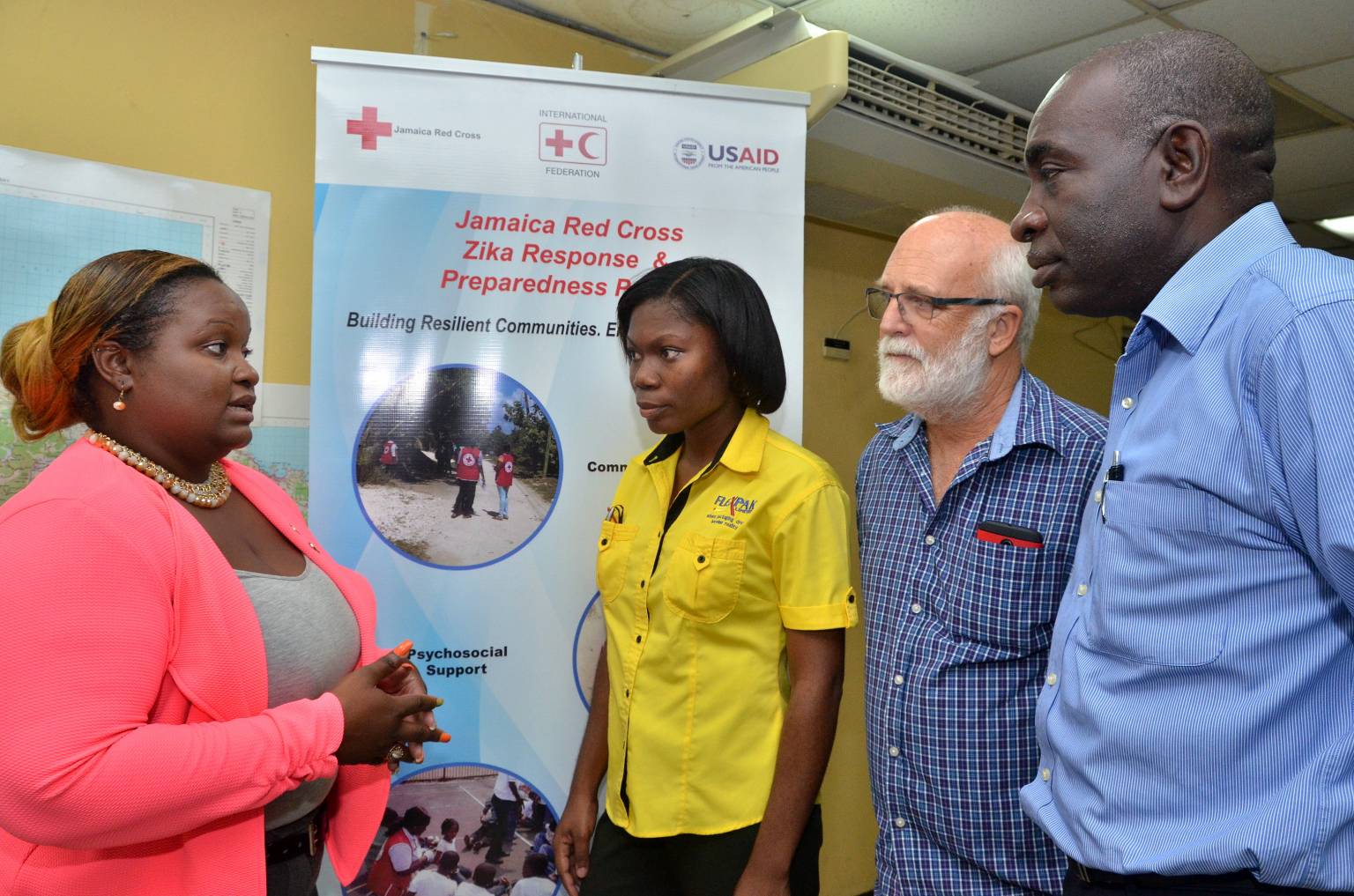Jamaica Gets Support to Eradicate Zika-Carrying Mosquitoes
By: , September 30, 2017The Key Point:
The Facts
- Miss Henlon, who was speaking to JIS News at a recent meeting at the Red Cross headquarters in Central Village, St. Catherine, says drum covers are also being distributed to householders.
- All kinds of garbage, including old fridges, hub caps, tyres that can collect rain water, can be home to mosquitoes.
The Full Story
Jamaica’s programme to eradicate the aedes egypti mosquito, which is the primary vector for the Zika virus, has been given a boost through a US$250,000 provision under the Caribbean Zika Response and Preparedness Project.
The 16-month undertaking is being implemented by the Jamaica Red Cross through funding from the United States Agency for International Development (USAID).
Under the initiative, communities in seven parishes have been identified for targeted intervention, which include clean-up activities and public education.
The parishes are Kingston, St. Andrew, St. Catherine, St. Mary, Portland, Westmoreland, and St. James.
Teams of Red Cross volunteers, along with the organisation’s field officers are already in the targeted areas visiting homes and staging community sensitisation sessions to empower residents to take action to eradicate breeding areas in and around their homes.
Project Manager, Jamaica Red Cross, Kalesha Henlon, says a big part of the programme is the cleaning of communities, which has already started.
She informs that old tyres and containers that collect water, providing a breeding ground for the pests, are being removed.
Miss Henlon, who was speaking to JIS News at a recent meeting at the Red Cross headquarters in Central Village, St. Catherine, says drum covers are also being distributed to householders.
She notes that the covers have been working successfully, and the Red Cross is seeking additional support to widen distribution both inside and outside of the project areas.
“We are doing something great for the nation, and that is one reason why we ask for collaboration with stakeholders,” she says.
Meanwhile, Miss Henlon tells JIS News that coming out of a survey, which revealed that only one per cent of those polled in the targeted communities is aware that Zika can be transmitted through sexual contact, focus will be placed in this area.
She says that advertisements will be placed on buses, among other measures.
“We are promoting the use of condoms or dual contraception methods to ensure that persons, especially pregnant mothers, don’t get infected, as this can severely affect children,” Miss Henlon says.
Zika has been linked to microcephaly, a rare condition in which infants are born with smaller or shrunken brains and heads.
“We are targeting maternity stores, to reach pregnant women,” Miss Henlon adds.
Chief Medical Officer, Dr. Winston De La Haye, in endorsing the project, is appealing for persons in the communities to cooperate fully.
While cases of Zika have significantly declined, and the disease is not the threat that it was a year ago, Dr. De La Haye notes that the virus is endemic to the country “so we don’t want the public to relax”.
In addition, he says, there are still instances of dengue fever and chikungunya Virus (CHIKV) around, which are transmitted by the same mosquito that spreads Zika.
“In the long run, it is you the individual that we are helping,” he adds.
Dr. De La Haye is calling on householders to take personal responsibility for their surroundings and devote at least 10 minutes each week to inspecting their homes to ensure that they are not providing breeding ground for the mosquito.
He notes that under the Mosquito Control and Research Unit, initiated by Minister of Health, Dr. the Hon. Christopher Tufton, and housed at the University of the West Indies’ (UWI), Mona Campus, a number of agencies, including the Red Cross, are collaborating in the eradication of mosquitoes.
“The work of those agencies… is all aimed at reducing the number of breeding sites and the possibility of persons being infected by the Zika virus,” he points out.
Persons wishing to collaborate with the Red Cross Zika team can contact the organisation at 984-7860-2, or email jrcs@jamaicaredcross.org.
The most common symptoms of the Zika virus are fever, rash, joint pain, and red eye. The illness is usually mild with symptoms lasting from several days to a week. Severe illness requiring hospitalisation is uncommon. There is no vaccine to prevent or medicine to treat the virus.
Aedes egypti mosquitoes typically lay eggs in and near standing water, in things like buckets, bowls, animal dishes, flower pots and vases.
All kinds of garbage, including old fridges, hub caps, tyres that can collect rain water, can be home to mosquitoes.




